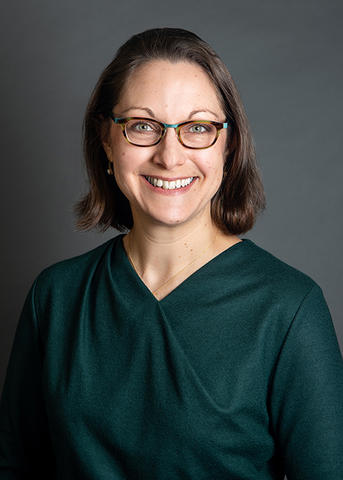
Christina Pacak, PhD
Assistant Professor, Department of Neurology
E-MAIL: [email protected]
Advising Statement: Here
Research Interests:
Christina Pacak joined the University of Minnesota faculty as an Assistant Professor in the Neurology Department in Winter 2021. Her laboratory investigates mechanisms that lead to mitochondrial dysfunction in a variety of disease settings including cardiomyopathies, muscular dystrophies, and premature aging disorders associated with neurological dysfunction. Her research program uses differentiated patient-derived induced pluripotent stem cells (iPSCs), and various in vivo models to test adeno-associated virus (AAV) mediated gene delivery systems.
Publications
- Peripheral neuropathies associated with DNA repair disorders. Muscle Nerve. 2023 Feb;67(2):101-110.
- The Notch signaling pathway in skeletal muscle health and disease. Muscle Nerve. 2022 Nov;66(5):530-544.
- Diagnostic capabilities of nanopore long-read sequencing in muscular dystrophy. Ann Clin Transl Neurol. 2022 Aug;9(8):1302-1309.
- Tsai AC, Pacak CA. Bioprocessing of human mesenchymal stem cells: From planar culture to microcarrier-based bioreactors. Bioengineering (Basel). 2021 Jul 7;8(7):96.
- Li C, Vargas-Franco D, Saha M, Davis RM, Manko KA, Draper I, Pacak CA, Kang PB. Megf10 deficiency impairs skeletal muscle stem cell migration and muscle regeneration. FEBS Open Bio. 2021 Jan;11(1):114-123.
- Watanabe N, Kitada K, Santostefano KE, Yokoyama A, Waldrop SM, Heldermon CD, Tachibana D, Koyama M, Meacham AM, Pacak CA, Terada N. Generation of induced pluripotent stem cells from a female patient with a Xq27.3-q28 deletion to establish disease models and identify therapies. Cell Reprogram. 2020 Aug;22(4):179-188.
- Barton ER, Pacak CA, Stoppel WL, Kang PB.The ties that bind: functional clusters in limb-girdle muscular dystrophy. Skelet Muscle. 2020 Jul 29;10(1):22.
- Suzuki-Hatano S, Saha M, Soustek MS, Kang PB, Byrne BJ, Cade WT, Pacak CA. AAV9-TAZ gene replacement ameliorates cardiac TMT proteomic profiles in a mouse model of Barth Syndrome. Molecular Therapy - Methods & Clinical Development, Volume 13, 2019, Pages 167-179, ISSN 2329-0501, https://doi.org/10.1016/j.omtm.2019.01.007.
